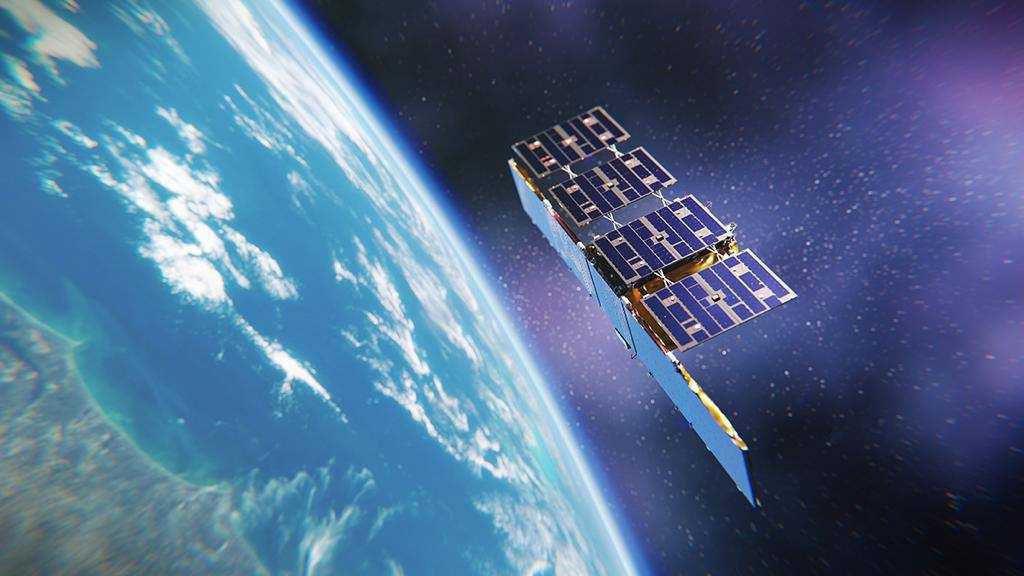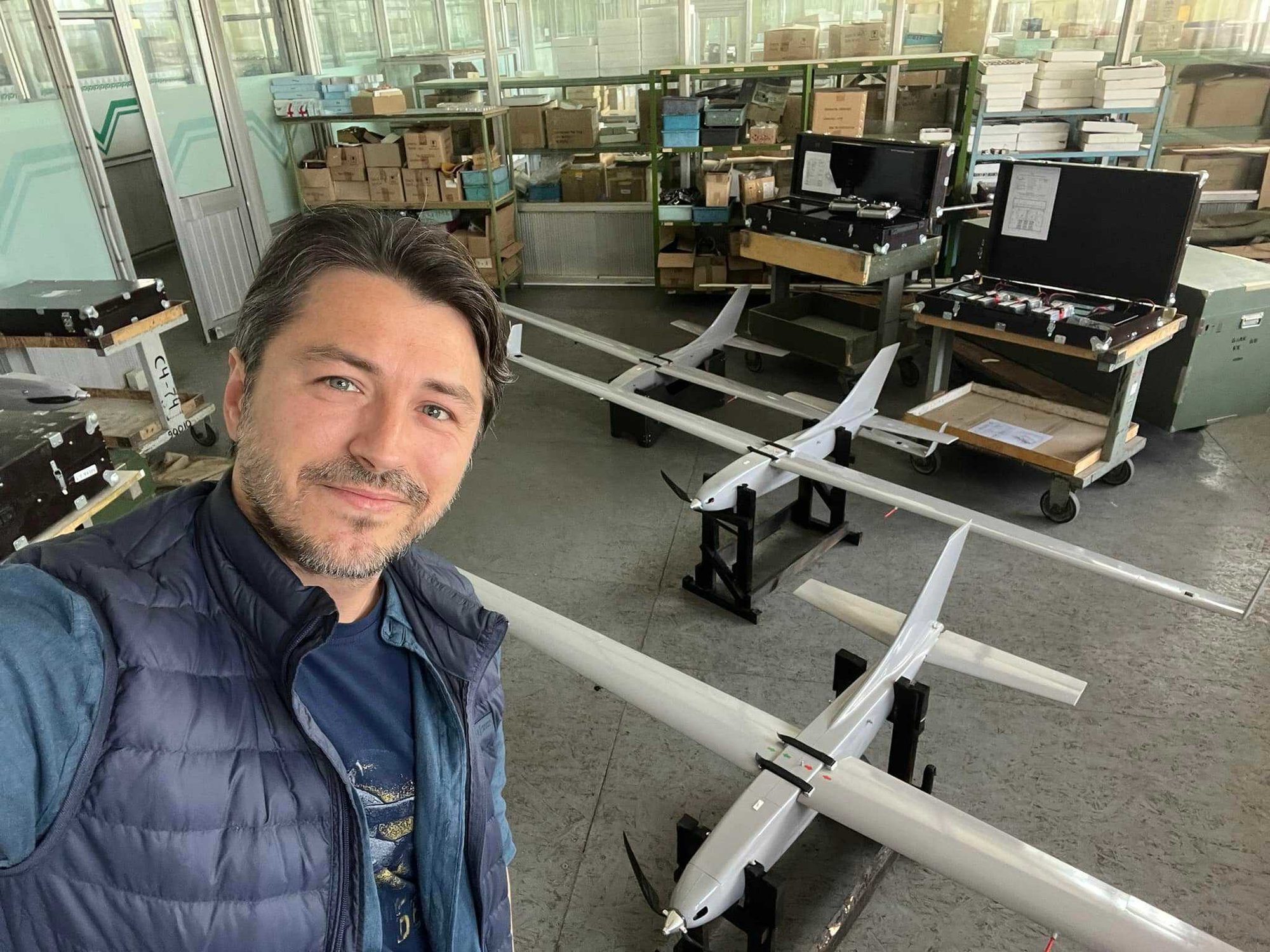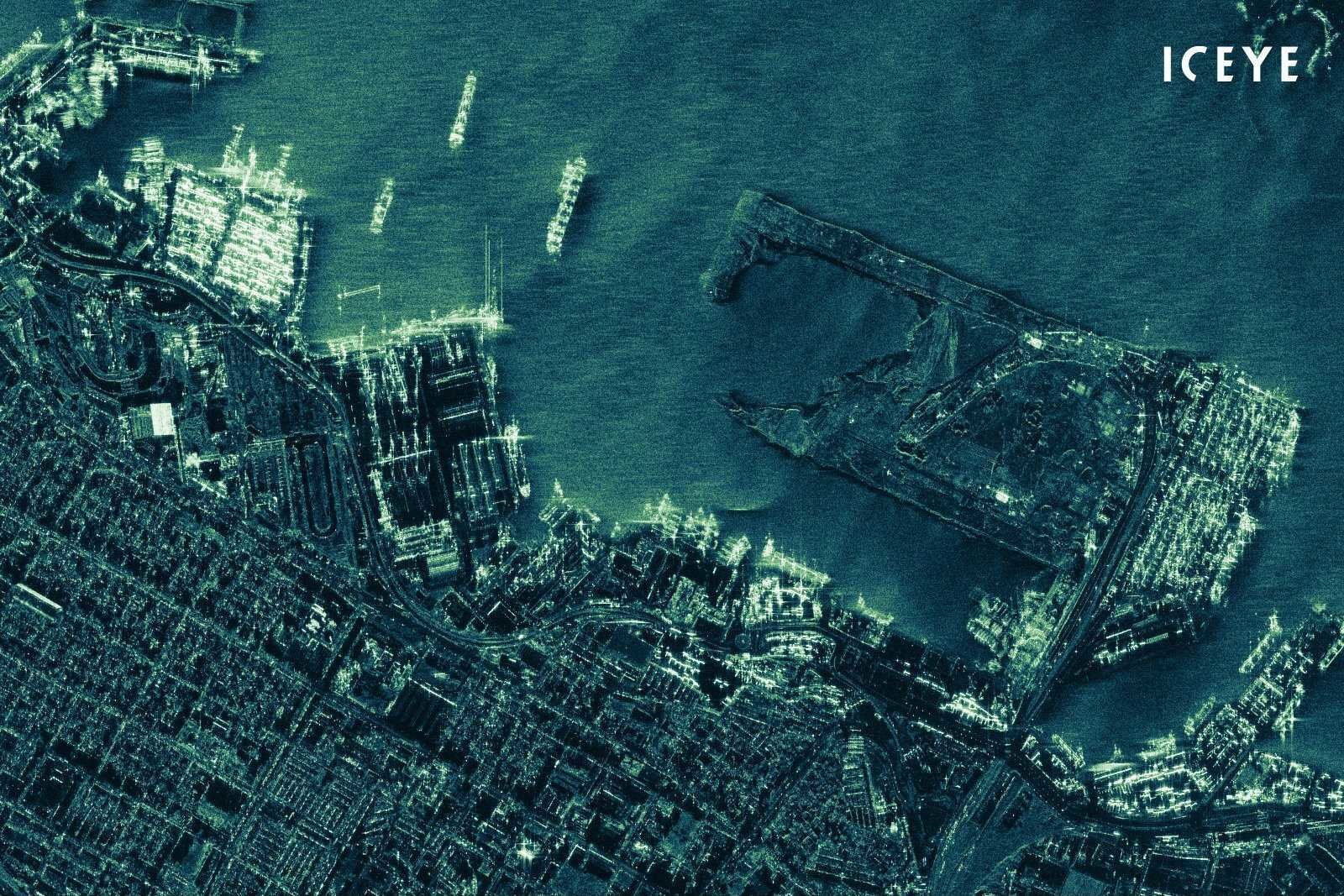Ukrainians Crowdfund Access to Cutting-Edge Satellite Surveillance

An artist’s rendition of the ICEYE surveillance satellite. Photo courtesy Serhiy Prytula Charity Foundation via Twitter.
KYIV, Ukraine — Ukrainians have been crowdfunding support for their country’s military since Russia first invaded in 2014. Yet that effort has come a long way from the early days of making thunder runs through Russian artillery fire to deliver food, water, and first aid kits. Now, some six months into Russia’s full-scale war, one Ukrainian charity is using some $17 million in donations to purchase control over a cutting-edge surveillance satellite.
“This agreement is a significant step in responding to the Government of Ukraine’s urgent request for critical earth observation data and it will greatly benefit our Armed Forces,” Ukrainian activist Serhiy Prytula, founder of the Serhiy Prytula Charity Foundation, wrote in a release.
On Thursday, Aug. 18, Prytula's foundation reported the deal with ICEYE, a Finnish-based commercial satellite company, to provide Ukraine’s military total control over one synthetic aperture radar, or SAR, surveillance satellite. The satellite, which is already in an orbit that passes over the Eastern European region, can survey terrain to a fidelity of one meter, through any weather, day or night.

Ukrainian activist Serhiy Prytula, seen here in a photo dated June 1, 2022, has raised millions of dollars through his foundation to support Ukraine’s military. Photo courtesy of Serhiy Prytula/Facebook.
“ICEYE owns the most developed radar satellite imaging technology in the world as of today,” Prytula wrote in Thursday's statement.
ICEYE currently operates a constellation of micro-satellites in low-earth orbit, including the largest commercial fleet of SAR satellites. Weighing in at under 100 kilograms, each SAR satellite is equipped with a sensor that, apart from seeing through clouds and smoke, can also detect subtle changes to an area that are invisible to the naked eye.
"By comparing two or more images you can clearly see where changes have happened between acquisition times,” ICEYE reports on its website. “For example you can see things like if an unpaved road had been used or if work had been done at a construction site.”
Rather than relying on ambient light, SAR sensors emit radar waves that reflect back from the earth’s surface. According to ICEYE’s website, the sensors can zoom out to cover an area of some 50,000 square kilometers while also being able to zoom in to a fidelity of one meter.
Underscoring the technology’s combat applications, the US Air Force’s fleet of F-15E Strike Eagle warplanes are equipped with AN/ASQ-236 synthetic aperture radar pods. According to an Air Force fact sheet, “This technology provides Combat Air Forces with the ability to precisely geo-locate points of interest and conduct surveillance activities day or night, in adverse weather conditions.
According to Thursday's deal, ICEYE will still operate the assigned satellite, but Ukraine’s military will have full control. Thursday’s deal also grants the government in Kyiv full access to ICEYE's entire surveillance satellite constellation — comprising 21 spacecraft, according to an ICEYE release.
There is a delay between radar data collection and the delivery of usable imagery to a client — a period of up to five days, according to ICEYE’s website. That lag time could diminish the satellite’s practical utility in daily combat operations. Even so, the ability to detect terrain changes over time could allow Ukraine’s armed forces to spot ammunition depots and other static Russian targets.

An undated image captured by one of ICEYE’s surveillance satellites. Photo courtesy of the ICEYE website.
“With this agreement, ICEYE further builds on its efforts to provide objective data and technological support to Ukraine,” Rafal Modrzewski, CEO of ICEYE, said in Thursday’s release. “We firmly believe [synthetic aperture radar] technology and its capabilities will continue to add significant value to the Government of Ukraine, now enabled by the work of the Serhiy Prytula Charity Foundation.”
A Ukrainian venture capitalist and commercial space flight pioneer named Max Polyakov also reportedly played a role in negotiating the ICEYE deal for Ukraine’s armed forces.
Among many other items, the Serhiy Prytula Foundation has also purchased protective gear, drones, trucks, communication systems, and combat first aid training for Ukraine’s armed forces.
To fund the ICEYE satellite deal, the foundation tapped into a war chest of about $17 million raised during a three-day crowdfunding blitz in June to purchase three Turkish-made, armed Bayraktar TB2 drones. The Baykar company, maker of the Bayraktar, ultimately refused the foundation’s money and gave Ukraine’s armed forces the three drones for free.
Read Next: There’s No McPeace, But McDonald’s Reopens Some Ukraine Restaurants

BRCC and Bad Moon Print Press team up for an exclusive, limited-edition T-shirt design!
BRCC partners with Team Room Design for an exclusive T-shirt release!
Thirty Seconds Out has partnered with BRCC for an exclusive shirt design invoking the God of Winter.
Lucas O'Hara of Grizzly Forge has teamed up with BRCC for a badass, exclusive Shirt Club T-shirt design featuring his most popular knife and tiomahawk.
Coffee or Die sits down with one of the graphic designers behind Black Rifle Coffee's signature look and vibe.
Biden will award the Medal of Honor to a Vietnam War Army helicopter pilot who risked his life to save a reconnaissance team from almost certain death.
Ever wonder how much Jack Mandaville would f*ck sh*t up if he went back in time? The American Revolution didn't even see him coming.
A nearly 200-year-old West Point time capsule that at first appeared to yield little more than dust contains hidden treasure, the US Military Academy said.












